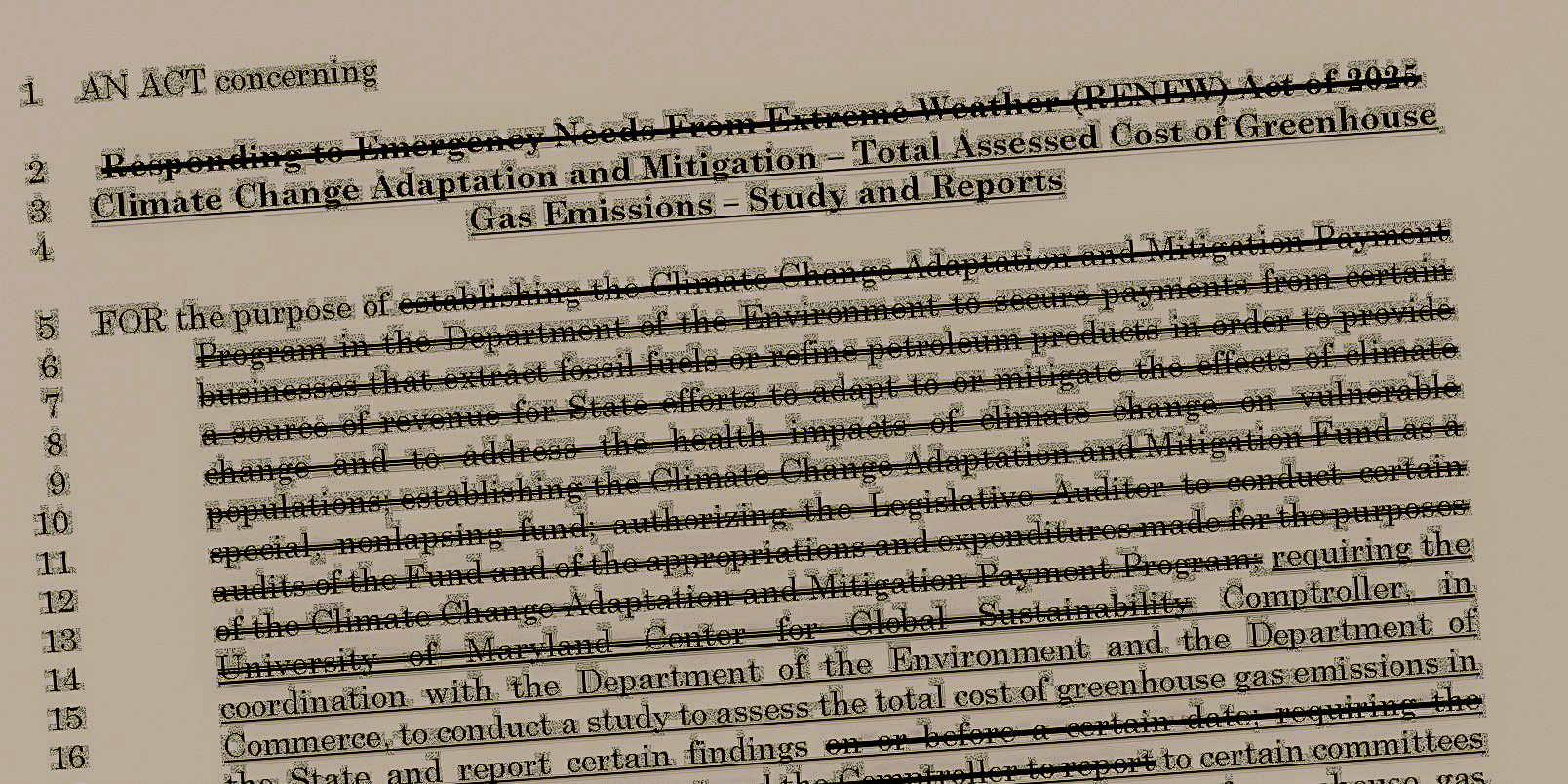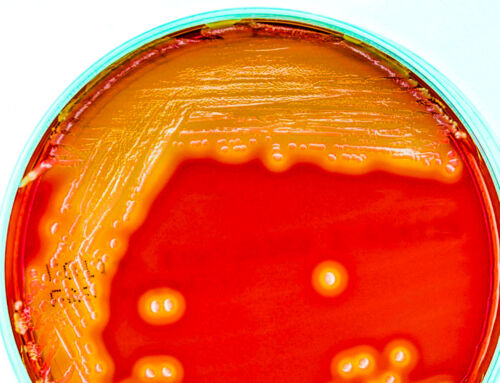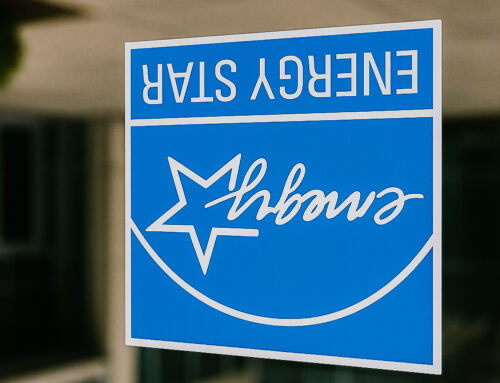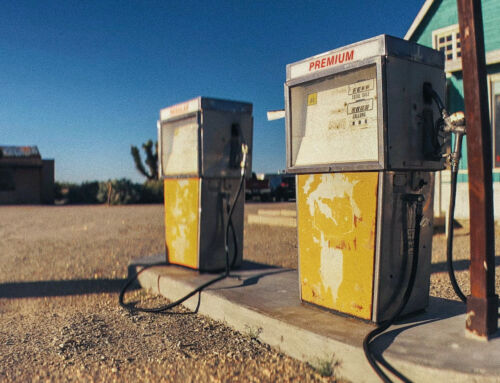View by Topic
Recent Articles
-
Mold Testing in Maryland Real Estate under the New LawSaturday, June 14th, 2025
-
Energy Star: A Quiet Exit and a Bright Future Beyond GovernmentSaturday, June 7th, 2025
-
Congress Blocks California’s Gasoline Car BanSaturday, May 31st, 2025
-
EPA Will Keep Current Limits for “Forever Chemicals” in Drinking WaterSaturday, May 24th, 2025
-
Court Indefinitely Pauses SEC Climate Rule LitigationSaturday, May 17th, 2025
View by Month/Year
“Green Building Law Update” Headlines
Recent Articles & News from
Stuart Kaplow’s blog
at GreenBuildingLawUpdate.com
- Congress Blocks California’s Gasoline Car Ban: A Legal and Policy Analysis June 1, 2025
- EPA Will Keep Current Limits for “Forever Chemicals” in Drinking Water May 25, 2025
- Court Indefinitely Pauses SEC Climate Rule Litigation May 18, 2025
- Maryland is About to Regulate Mold: But is the Cart Before the Horse? May 11, 2025
Subscribe to the Green Building Law Update!
Stuart Kaplow brings his expertise and extensive experience to the table with his unique digital publication, "Green Building Law Update". Subscribers receive regular updates to keep them informed about important issues surrounding Environmental Law, Green Building & Real Estate Law, as well as the emerging demand for Environmental Social Governance (ESG).
Get fresh content through the lense of Stuart Kaplow's cutting-edge expertise, innovative commentary and insider perspective. Don't miss another issue! Subscribe below.

New Environmental Laws from the 2025 Maryland Legislative Session
After this blog was posted, on September 16, 2025, Governor Wes Moore announced that he was vetoing 23 bills including those indicated below.
The 447th session of the Maryland General Assembly concluded on April 7, 2025. A total of 878 bills passed both chambers. The governor has already signed 230 of these bills into law and has until May 27 to sign or veto the rest.
The annual 90 day legislative session was characterized as “tough” and “challenging” by some, but in context, this year’s 878 enacted bills are significantly fewer than the 1052 bills passed last year. In terms of overall bill volume, fewer bills were introduced this year, with 2,565 bills versus 3,480 bills last year.
A great deal of time was spent addressing a budget deficit. The wide variety of other subjects debated ranged from when, in the final minutes of the legislative session, senators and delegates designated the “Orange Crush” the official state cocktail to unanimous votes in both chambers that made “chromite” the state mineral.
This post is a compilation of environmental legislation enacted in the session, including a link to each bill. And yes, as the author, I determine what is an environmental bill, with less than 10% of those bills we tracked this session having passed both chambers. Time and space do not allow recitation of legislation that failed and was not enacted, including, sadly, we will not consider the failed bill that would have exonerated individuals accused of witchcraft before the American Revolution.
Maryland has been described as having more pages of environmental statutes and regulations per capita than any other state. The new laws compiled below add to that already very progressive green regulatory scheme.
Those who chase being the fastest adapters and quickest disrupters, and not just in the environmental industrial complex, will find business opportunities to lead and profit in environmental matters, including opportunities to monetize these newly approved government enactments.
Greenhouse Gas Emissions
Enacted without the Governor’s signature. The environmental bill that will have the broadest impact will be House Bill 49 (passed), despite significant amendments that removed the regulation of Energy Use Intensity (EUI). The Climate Solutions Now Act (Chapter 38 of 2022) made sweeping changes to the State’s approach to reducing greenhouse gas emissions and climate change. To accomplish these goals, the Maryland Department of the Environment was to create building energy performance standards (BEPS). Under this bill, among other things, MDE regulations implementing BEPS must (1) include additional special provisions, exceptions, and exemptions and (2) include an annual reporting fee of $100 per covered building. The bill also alters the definition of “covered building” to exclude hospitals and requires MDE to accept as automatically compliant each building that complies with the Montgomery County program. MDE is also now required to analyze and report the potential costs and benefits of BEPS policy options that feature direct emissions reduction requirements, EUI requirements, and more.
Vetoed. Arguably the most dramatic environmental legislation to pass in Maryland this year, having been criticized on the opinion page of The Wall Street Journal Senate Bill 149/House Bill 128 (both passed) require the Comptroller, in coordination with the Department of Commerce and MDE, to study to the total cost of GHG emissions in the State and report the findings by December 1, 2026 (.. on how to “make the polluters pay”). The report must include an economic analysis to determine if there would be a cost passed on to taxpayers if each fossil fuel company that has a sufficient nexus to the State and that emitted more than 1.0 billion tons of GHG emissions globally between 1995 and 2024 were required to compensate the State for climate change. As introduced, before being amended, the bill authorized the State to file suit immediately against fossil fuel companies for past GHG emissions (.. a form of climate change Superfund act), but as amended, such is delayed until after 2026.
House Bill 286 (passed) replaces the 12 “visions” that a local planning commission must implement through a local jurisdiction’s comprehensive plan with 8 new “planning principles” (.. Smart Growth is “out” and GHG emission reduction is “in”), including being used to guide State funding of transportation projects.
Buildings
Senate Bill 96/House Bill 277 (both passed) require, with specified exceptions, that at least one “water bottle filling station” or a combined water bottle filling station and drinking fountain: be installed in all new construction at each location where a drinking fountain is required under the International Plumbing Code; be installed in any building undergoing a renovation if the installation of a drinking fountain is required under the IPC; and replace a drinking fountain in an area of a building undergoing a renovation if the renovation includes replacing the drinking fountain.
Senate Bill 856 (passed) requires MDE, in consultation with the Maryland Department of Health, the Department of Housing and Community Development, the Maryland Department of Labor, and the Department of General Services to develop requirements for landlords relating to mold in rental units, including, among other things, performing a mold assessment and remediation under specified conditions. By June 1, 2027, MDE, in consultation with MDH, DHCD, and DGS, must adopt regulations to establish uniform standards for mold assessment and remediation.
House Bill 1367 (passed) establishes a civil penalty of up to $50,000 for the falsification of information submitted in a verified report of the result of lead contaminated dust testing or visual inspection provided to MDE pursuant to statutory provisions related to the reduction of lead risk in housing.
Existing law prohibits State funds from being used to install or replace a permanent outdoor luminaire on the grounds of any State building or facility unless certain standards are met, including that the luminaire is designed to maximize energy conservation and minimize light pollution, glare, and light trespass. House Bill 452 (passed) alters this prohibition by (1) including State parks and trails in the prohibition and (2) exempting lighting used to illuminate the field of play at a sports facility.
Senate Bill 175/House Bill 222 (both passed) prohibit the sale, offer for sale, transfer, or distribution of non-arc-resistant jacketed corrugated stainless steel tubing; providing a civil penalty of up to $1,000 for a violation of the Act; and requiring the Maryland Department of Labor and the Office of the State Fire Marshal, by September 1, 2026, to submit a final report with recommendations related to preventing the fire hazards associated with commonly used fuel gas piping systems.
Wildlife
Senate Bill 946/House Bill 894 (both passed) authorize the Secretary of Natural Resources to issue an incidental taking permit for the Indiana bat, the eastern small-footed bat, the northern long-eared bat, or the tricolored bat if an applicant submits a certain conservation plan and the Secretary makes certain findings; even when the bat species are not endangered under Federal law.
House Bill 731 (passed) establishes the Maryland Connectivity Coalition to foster collaboration among State and federal agencies, nongovernmental organizations, and other stakeholders to protect endangered wildlife from habitat fragmentation; requiring the State Highway Administration to have final decision-making authority regarding decisions related to placement, funding, or design of wildlife crossings; etc.
Senate Bill 722/House Bill 1155 (both passed) establish a definition of “ecological restoration.” Although referenced in Green and Blue Infrastructure programs, the phrase is not defined in State statute or regulations. Henceforth, “ecological restoration” is an activity undertaken with the goal of recovering, re-establishing, or enhancing a degraded, damaged, or destroyed ecosystem through improvements to physical, chemical, or biological characteristics or processes, returning natural or historical functions or services, or protecting or improving resiliency.
Hazardous Materials
Senate Bill 425 (passed) alters the factors MDE considers in establishing a certain fee from generators of coal combustion by products (e.g., fly ash) for certain purposes; establishing the Statewide Coal Combustion By-Products Coordinating Committee to share information, monitoring results, and certain remedial actions with respect to certain coal combustion by-product sites; etc.
Water Quality
The Chesapeake Bay Legacy Act, House Bill 506 (passed) establishes the Maryland Leaders in Environmentally Engaged Farming (LEEF) Program, for farms (modeled after LEED for buildings), altering the definition of “healthy soils” for purposes of the Maryland Healthy Soils Program; exempting certain holders of certain fishing licenses from the requirement to obtain a food establishment license from the Maryland Department of Health; establishing the Water Quality Monitoring Program; etc.
House Bill 1467 (passed) is an emergency measure that modifies existing law governing special taxing districts for financing erosion prevention or control projects.
House Bill 1470 (passed) provides in Prince George’s County that procedures exist to enforce a certain violation involving the clearing or cutting of trees in the Chesapeake and Atlantic Coastal Bays Critical Area.
Senate Bill 117/House Bill 131 (both passed) modify the prioritization and eligibility for projects that receive funding from the BRF Septics Account, such that priority is given first for failing systems in the Chesapeake and Atlantic Coastal Bays Critical Area.
Senate Bill 265/House Bill 25 (both passed) establish the Reservoir Augmentation Program in MDE and prohibit a person from performing “reservoir augmentation,” or the planned placement of reclaimed water into a surface water reservoir used as a source for a drinking water treatment facility, without a permit.
Senate Bill 930/House Bill 1296 (both passed) establish the Managed Aquifer Recharge (MAR) Pilot Program in MDE to authorize, regulate, and evaluate the use of treated reclaimed water as a source for groundwater augmentation through MAR permits.
New Energy Generation
Several bills were introduced in an effort to support additional in-state energy generation from a variety of sources. Broadly, Senate Bill 937/House Bill 1035 (both passed) establish or modify various provisions of law affecting electricity generation, utility cost recovery, and large customer interconnections. Additionally, the bills establish that it is the policy of the State to encourage the development of nuclear power and make several changes to further that policy, including establishing an application process for new nuclear energy procurement. The bills also declare a State goal related to distribution-connected front-of-the-meter energy storage devices and establish two rounds of applications and approvals by the Public Service Commission for such devices. The bills also establish a process to provide two residential electric customer bill credits in fiscal 2026. Finally, the bills remove waste-to-energy and refuse-derived fuel from eligibility for inclusion in the State Renewable Energy Portfolio Standard.
Senate Bill 931/House Bill 10316 (both passed) all but completely overhauls and makes easier the approval processes for solar projects by, among other things, curtailing local authority over the construction and development of solar energy generating stations and establishing an expedited approval process for certain solar projects. The curtailing of local government authority has been controversial, making this one of the few bills for which there is a serious call, both from County officials and Republicans, for the Governor to veto.
House Bill 1111 (passed) expands eligibility under the Small Solar Energy Generating System Incentive Program, including authorizing tax incentives, to include solar energy generating systems located on or over a water retention pond or quarry currently or previously designated for industrial use. The systems must have generating capacities between 20 kilowatts and 5 megawatts.
Vetoed. In order to plan for future generation, transmission, and distribution needs in the State, Senate Bill 909/House Bill 1037 (both passed) establish the Strategic Energy Planning Office as an independent office within PSC. A surprising number of legislators characterized this as a bad bill simply duplicating what the PSC and MEA are already required to do.
Vetoed. Senate Bill 116/House Bill 270 (both passed) require the Maryland Department of the Environment, MEA, and the University of Maryland School of Business, in coordination with the Department of Legislative Services, to conduct an analysis of the likely environmental and economic impacts of data center development in the State. Many have suggested this study is unnecessary and is actually something considered in the bill above.
Recycling
Senate Bill 901 (passed) among other things, requires MDE to develop a statewide list of covered materials that are determined to be recyclable or compostable through curbside programs; establishes provisions relating to service providers, who must register with MDE and are eligible to request reimbursement from a producer responsibility organization for costs associated with collecting, transporting, and processing covered materials; and (3) requires MDE to contract for additional statewide recycling needs assessments every 10 years to gather information related to recycling, organics recycling, and reuse in the State.
Next Year
If I can assist you in finding business opportunities to lead and profit in environmental matters advantaged by these newly enacted state laws, or if we can otherwise assist your business with any environmental matter, do not hesitate to give me a call.
The Maryland General Assembly is next scheduled to reconvene on January 7, 2026.
Thank you to the Maryland Department of Legislative Services for the information in this post.
Join us for the next in our “carbon based life form” webinar series, “New Environmental Laws from the 2025 Maryland Legislative Session” on Tuesday, May 6, from 9 – 9:30 am. The webinar is complimentary, but you must register here.stuart









